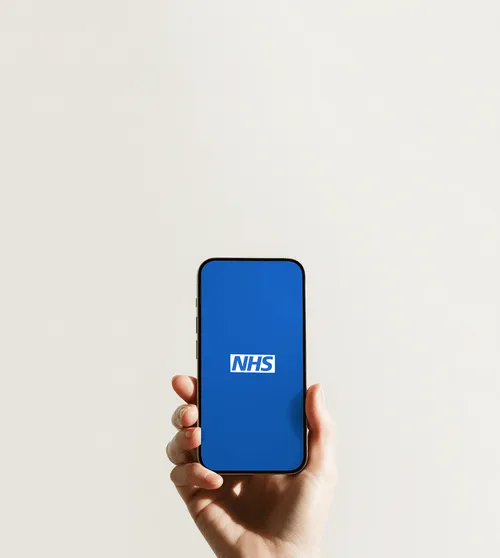The Rapid Health SmartCare Coordinator
Dynamic Care Coordination
Once the first three essential components of the HEAL programme are established, the keystone element is the Rapid Health SmartCare Coordinator (RHSC). This autonomous clinical intelligence capability revolutionises healthcare coordination by adding event-driven intelligence to what are currently static care plans and passive electronic health records -systems that merely store historical data rather than actively coordinating care.
From Static Records to Living, Breathing Care Plans
Today’s healthcare records, whether fragmented across multiple systems or consolidated into a single patient record, function primarily as historical repositories - documenting past events rather than guiding future actions. This passive approach leaves significant gaps in care coordination, with patients and clinicians navigating complex pathways without consistent guidance or oversight.
The RHSC materially alters this paradigm by transforming static records into dynamic, living care plans. Critically, the RHSC is built on the same proven AI reasoning engine and platform technology that powers Smart Triage - technology already demonstrated to work effectively across millions of patient interactions. Rather than simply reading existing data, the RHSC actively generates new, high-value clinical data by communicating with patients through chat-based app prompts, filtering information from wearable devices and home-based diagnostic equipment, and documenting interactions with rich contextual information.
This RHSC-generated data has substantially higher clinical value than traditional records because it includes essential context - why information was gathered, what clinical reasoning informed the interaction, and what pathway decisions were made. This not only enhances current care delivery but also improves future clinical decision-making, creating a virtuous cycle of increasingly intelligent care coordination.
Intelligent Data Management and Monitoring
The system’s intelligence is evident in its ability to differentiate between data types - recognising that certain biomarkers require different monitoring frequencies. For instance, it understands that weight might need monthly or weekly measurement, while blood sugar requires tracking every few hours for diabetic patients, and blood pressure needs consistent monitoring for hypertensive patients. Unlike conventional systems that treat all data equally or rely on fixed monitoring schedules, the RHSC ensures all information gathering has appropriate clinical relevance and frequency based on each patient’s specific conditions and risk factors.
This intelligence extends to care coordination across the new NHS structures. The RHSC clearly identifies which healthcare professional actors are accountable for distinct aspects of patient care based on neighbourhood, provider or ICS protocols and best practice guidelines. It aligns seamlessly with the NHS neighbourhood model, where care is delivered closer to patients’ homes through multidisciplinary teams. The RHSC nudges patients and prompts healthcare actors by scheduling tasks or interventions, pinpointing precisely what interventions and which providers are required at each stage, keeping patients on optimum pathways without gaps or redundant touchpoints that create waste within the health system.
Integrated Pathways vs Fragmented Touchpoints
By optimising clinical pathways according to local resources and protocols, the RHSC creates a continuous, coordinated care experience rather than the disconnected transactions typical of traditional models. Instead of patients experiencing fragmented hand-offs between services -repeatedly explaining their situation to different providers and navigating disconnected episodes of care - the RHSC ensures a coherent journey where each step logically builds on the previous one.
This integrated pathway approach eliminates the common frustration of story repetition, where patients must repeatedly explain their condition to different healthcare professionals. It also prevents dangerous and costly gaps in care transitions - such as missed follow-ups after hospital discharge or delayed specialist referrals - that often lead to deteriorating health outcomes and higher system costs. The RHSC activates healthcare resources precisely when and where they’re needed most -ensuring every patient receives best-practice care as an early intervention rather than reactive treatment after conditions have worsened.
Unlocking the Value of Health Data
The RHSC exemplifies how clinical intelligence can finally unlock the latent promise of health data in care delivery. While the NHS has long pursued integration of health records, even a perfectly integrated static record still requires clinicians to review, interpret, and act upon the information - creating significant workflow burdens and hazardous opportunities for gaps in care.
Leveraging the same platform technology and AI reasoning capabilities that have proven successful in Smart Triage, Rapid Health has demonstrated that cloud-based systems with embedded clinical intelligence can yield exponential gains by adding dynamic decision-making capabilities to otherwise static information systems. This approach enables the immediate unification of patient records held across care providers into a dynamic, cohesive system powered by event-driven intelligence without waiting for complex data integration projects to complete.
Transforming Care Delivery and Accountability
This shift to dynamic, event-driven care coordination enables truly proactive healthcare delivery. The RHSC can anticipate needs, prevent care escalation, and coordinate multidisciplinary efforts across acute, chronic, and social domains. Most importantly, it establishes clear accountabilities for clinicians, teams, and organisations within the current complex matrix care structure while maintaining the flexibility needed for personalised care.
For example, in managing chronic conditions like diabetes or heart failure, the RHSC can delineate clearer accountability through centralised teams led by specialist doctors and nurses working in concert with GPs. This integrated approach enables the system to monitor patient data and respond to deviations, whether autonomously for routine matters or via data-prompted clinical intervention for more complex situations. The entire care team stays informed and aligned on all relevant interventions, epitomising a true shared-care paradigm.
The RHSC represents the culmination of the HEAL programme -a system that not only enables integrated care but actively drives it through intelligent coordination. By transforming how care is organised and delivered, it offers a pathway to realise the full potential of an integrated care system without requiring a redrawing of organisational responsibilities across a neighbourhood, provider, or ICS.




